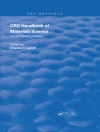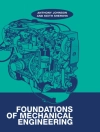This book aims at bringing together global researchers to generate thought on how this transition from Industry 4.0 to Industry 5.0 could make a difference to the globe for larger good. The collaboration and interaction between man and machine has given rise to Industry 5.0. With the prime objective of Industry 5.0 to create a benefit for the human beings while tapping on to the advantage of Industry 4.0, in no case, does it replace what has already been achieved. In fact, it brings to light what can be done in order to make life better. While Industry 4.0 offered extraordinary technological advancement, Industry 5.0 reasons out that technology alone is not sufficient to answer everything or provide a solution, but it is an amalgamation of both machine and human interaction to create that difference. In fact, with the impact of widespread digitalization that has led to dehumanization of the industrial makeup, the interest of global researchers has increased toward mapping how the humancreativity and brainpower can be reconciled with the intelligent systems that can enhance process efficiency.
Industry 5.0 has touched upon some of those key domains which are of much concern and debate globally including resilience (both business and cyber), environment and sustainability, diversity and inclusion, values and ethics, vision and purpose, circular economy, understanding the human–machine collaboration and the ‘human-touch’ in the production process.
This transition that has taken place in moving from Industry 4.0 to Industry 5.0 has essentially created a need to pay cognizance to the role of ‘human’ in the process which creates an enhanced focus toward the right kind of skills and competencies, identification of training and developmental needs, talent acquisition and management, safety and wellbeing, future of work as well as hybrid working models.
Undeniably, the pace with which Industry 4.0 has been accelerating has bypassed the first three industrial revolutions, which is definitely a consequence of the fast introduction of new and cutting-edge technologies. While organizations are already in analyzing the context, mapping this transition and the flow of activities from Industry 4.0 to 5.0 is gaining attention as Industry 4.0 lacked personalization and customization. This co-existence of man and machine creates a pathway for newer prospects and opportunities to emerge and expand possibilities of personalization with the empowerment of ‘human’ in the production process.
This lays the foundation for this book. This book adopts a forward-looking approach by bringing in research and contributions that facilitate in mapping the consereasons, consequences and solutions for ‘man+machine’ across industries. This book serves as a guide not just to academia but also to the industry to adopt suitable strategies that offer insights into global best practices as well as the innovations in the domain.Зміст
The impact of digitalization towards the sustainability of Malaysian SMEs: the dynamic capabilities perspective.- Entrepreneurial Intention and Pre-Start-Up Behaviour during Covid-19 Era among the Working Adults In Bangladesh.- Attitude Towards the Deployment of Information Technology Programs in the Massive Open Online Course (MOOC) Environment.- Data Mining Techniques for Student Performance Prediction: A Review.- Artificial Intelligence and Security Challenges.- Does Work-Life Balance impact on the Organizational Citizenship Behavior: A study on Women employees in private sectors.- Modeling methodology, simulation and identification of performance indicators in a maternity unit of the UHC in Tunisia.- Impact of Immersive Technology and Virtual Work Environment, on Innovative Work Behaviour.- Clustering EU Member-States and Ukraine by Female Empowerment in Business.- Workplace Friendship and Innovative Work Behavior: The Role Of Psychological Empowerment and Knowledge Sharing.- She-Covery – Reversing pandemic effects through Women entrepreneurship.- The Effect of Mentorship and Funding Support on Entrepreneur’s Motivation in Bahrain.- Impact of covid-19 on digitalization aspect on India’s MSMEs.- Determinants of Small Business Success: A Harmonization between Resources and Strategies.- The effects of Islamic microfinancing, social capital and ICT usage on women micro-entrepreneurs’ performance in Malaysia.- The Allegory of the Glass Ceiling and Reverberance of Woman Leadership in Politics: The Case of Arya Rajendran.- Pilot Study on Adoption and Usage of AI in Food Processing Industry by UTAUT2.- Artificial Intelligence in Finance.- A Study on Selection of Employers the business management students at Bangalore city.- THE IMPACT OF CORPORATE CULTURE ON INCUBATOR SUCCESS: THE MODERATING EFFECT OF INFORMATION AND COMMUNICATION TECHNOLOGY TOOLS.- Frugal digital innovation on agribusiness: an emergent concept developed through a bibliometric analysis.- The Quality of Electronic Services Provided by Zarqa University from the Point of View of Its Employees.- An automated System to Evaluate Learning Outcomes for Higher Education Programs.- Factors Affecting Food Security in the Kingdom of Saudi Arabia on the Light of Vision 2030 Strategies: Evidence from ARDL Approach (1970-2020).- Food exports and its contribution to the Sudan economic development in the light of Covid-19 Pandemic: Evidence from Simultaneous Equation Model (1974-2019).- Integration of eco-innovation drivers and their role in sustainable competitive advantage in SMEs: A Proposed Conceptual Model.- The Demand for Home-based Dialysis Post COVID-19.- Factors Influencing Talent Retention In April Dental Center.- Impact of economic growth, finance and trade nexus on environmental degradation in selected emerging countries.- WAQF-LINKED ISLAMIC FINTECH MICROFINANCE AS A BUSINESS ENABLER IN POST-PANDEMIC ECONOMY: THE EXPERIENCE OF HAL MICROFINANCE, KENYA.- A PROPOSED MODEL FOR BAHRAIN FIRM’S: STUDY THE FACTORS EMPOWERING EMPLOYEE RETENTION – A LITERATURE REVIEW.- FACTORS INFLUENCING EMPLOYEES’ PRODUCTIVITY IN BAHRAINI ALHELLI COMPANY- Literature Review.- THE RELATIONAL COHESION EXCHANGE MODEL TO ELUCIDATE COMMUTERS’ SWITCHOVER INTENTION FOR MASS RAPID TRANSIT RAIL.- A Study on Viewers Preference towards OTT (over- the- top) release platforms in Commercial Films after Covid 19.- Citizen Journalism: Technological and Digital Challenges.- Social Interactive Engagement for Generation Z:A Proposed Conceptualization.- IMPACT OF ORGANISATIONAL CULTURE ON KNOWLEDGE SHARING IN INFORMATION COMMUNICATION TECHNOLOGY FIRMS IN INDIA.- The extent of the use of information and communication technology on the quality of higher education at Palestine Technical University Kadoorie.- Determining of Factors Influencing Employee’s Retention at Almarai Company in Saudi Arabia.- Board Interlocking, Knowledge Sharing and Firm Performance.- Management control system: A literature review.- The Obligation of Corporate Group to Pay Business Zakat in Malaysia: A Legal and Shariah Analysis.- Department of Logistic Management, Faculty of Business and Economics, Palestine Technical University-Kadoorie, Tulkarm, Palestine.- Gap Analysis by Readiness Review including Online Learning during COVID-19 Pandemic Period for Engineering Programs at the College of Engineering – University of Baghdad.- The Study on Technology Acceptance in Baby and Mother Product Business Operation.- The role of Customer Knowledge in CRM-Customer’s Satisfaction link: A Study on Hotels in Indonesia.- Examination of the Relationship Between People with Disabilities (PWDs) and Employment Factors in Malay-sia: Employer’s Perspectives.- Technology Enhanced Learning through Learning Management System and Virtual Reality Googles: A critical review.- Technological Acceleration in Business Education – Study of Educator’s Attitude and Behavior Towards Usage of Technology: UTAUT Framework.- Exploring E-Learning During and Post Covid-19 Pandemic.- New Efficient Indicators for Placing Qualifications in the Jordanian National Qualifications Framework.- The Role of Senior Management in Disseminating a Culture of Quality in Higher Education Institutions.- A suggested Educational Guide for Applying Interna-tional Quality Assurance Standards in Jordanian Universities.- Attitudes of Students in the Faculty of Educational Sci-ences in Zarqa University towards Distance Education Using Educational Technology in The Light of COVID 19 Crisis.- A Proposed Vision to Improve the Ranking of Palestinian Universities in (Times Rankings 2022) For Sustainable Development Goals.- The Extent Of Human Resource Efficiency At Zarqa University From The Point Of View Of Its Faculty And Administrative Staff.- Teacher Preparation Program: Alumni Perceptions and Technology Utilization.- The level of educational tourism in Jordanian Universities through the relationship between the push-pull factors, expectations, Aspirations, and International Career Expectations.- The Study of Digital Learning Experience in Cargo Business.- The New Teaching Methods in Universities Using Artificial Intelligence.- Digital Anxiety among Students of the University College of Applied Sciences and its Relationship to some Variables.- Life skills and their Relationship to Self-affirmation among Deaf Students in the Universities of Gaza.- The Accounting Education, between Digitalization and the COVID-19 Crisis.- COVID-19 and Digitizing Accounting Education.- The Agile Adaptivity of Educators and Their Strategic Influence on the Learner During COVID-19 Pandemic.- The impact of Covid-19 And Digitizing Accounting Education.- Internet-hosted English Learning at UCAS: Licensed Ticket towards the Future.- ONLINE ACCOUNTING EDUCATION DURING COVID-19: LITERATURE REVIEW.- The effectiveness of Online-learning in light of the Corona pandemic from the primary education teachers’ point of view in the Gaza City.- Smart Scholarship System.- Return on expectations of jobseekers’ training in the Employability Skills Program of Bahrain.- An overview of the importance of training in the human resources department – solving the training problem in the Gulf V Company case study.- A case study of the employment strategy and its impact on the performance of the Future Educational Academy during the Covid 19 pandemic.- A case study of the employment strategy and its impact on the performance of the Future Educational Academy during the Covid 19 pandemic.- Adoption of Mobile Learning in Higher Education: An Investigation of Employees’ Perspectives.- Review of Financial technology applications and their related aspects.- Optimizing Performance and Spatial Distribution of ATMs during COVID-19 Lockdown – A Queuing Theory Approach.- Innovative clusters of transport security as a component of the national security of Ukraine.- MANAGING INTANGIBLE VALUE DRIVERS OF TECHNOLOGY COMPANIES: REPORTING PARADOX EFFECTS.- Building Contract in the Fifth Industrial Revolution: Embedding Sustainable Design and Construction Practices.- The Impact of Using Technology Integration on Supply Chain Functions and Stages.- Prioritization of the Digital Banking Services in Islamic Banking.- Factors Influencing Employee Turnover in Banking Sector.- An Analysis of The Use of Accounting System on Cloud: A Case Study in Malaysia.- The Impact of Legislation on the Decisions of the Governing Councils Between Public and Private Universities in Jordan.- Modelling the Significance of UTAUT Model in Predicting the Intention and Adoption of e Wallet among Malaysians.- Significance and Empowerment through self-Hygiene According to Modern Medical and The Relationship With Health in Curbing The COVID-19 Epidemic.
Про автора
Prof. Allam Hamdan
Allam Hamdan is Full Professor, he is listed within the world’s top 2% scientists list by Stanford University, and he is Dean of College of Business and Finance at Ahlia University, Bahrain. He is Author of many publications (more than 250 papers, 174 listed in Scopus) in regional and international journals that discussed several accountings, financial, and economic issues concerning the Arab world. In addition, he has interests in educational related issues in the Arab world universities like educational governance, investment in education, and economic growth. He was awarded the First Prize of Al-Owais Creative Award, UAE, 2019 and 2017; the Second Prize of Rashid bin Humaid Award for Culture and Science, UAE, 2016; the Third Prize of Arab Prize for the Social Sciences and Humanities, 2015; and the First Prize of ‘Durrat Watan’, UAE, 2013. He achieved the highest (1st) scientific research citation among the Arab countries according to Arcif 2018-2022. He was appointed as External Panel Member as part of Bahrain Quality Assurance Authority and National Qualifications Framework NQF as Validator and Appeal Committee, General Directorate of NQF, Kingdom of Bahrain. He is Member of Steering Committee in International Arab Conference of Quality Assurance of Higher Education. He is currently leading a mission-driven process for International Accreditation for College of Business and Finance by Association to Advance Collegiate Schools of Business (AACSB).
Dr. Arezou Harraf
As Experienced Educator, Dr. Arezou Harraf holds a Ph.D. in Technology Management and Human Resource Training and Development. She serves as Head of the Department of Business Studies at Box Hill College Kuwait. She is Visiting Assistant Professor at the University of Nevada Las Vegas during the summer term. She also serves as Academic Advisor for several M.B.A. students at Maastricht University.
Dr. Harraf is Founder and CEO of Learn & Evolve LLC. In this capacity, she helps organizations use strategy, science, and psychology to address workforce challenges such as low performance, productivity, turnover, and retention issues. Moreover, Dr. Harraf is Co-founder of Amplify Women Leadership Boot Camp to train women with skills to help them advance to executive positions within their organizations and/or become successful venture creators and entrepreneurs. With a focus on the future of technology and HR, she consults with organizations on improving existing in-house technology platforms to enhance features relating to HR and employee needs.
Dr. Harraf is Vice Chairperson of the Board of Directors at ABCK-Am Cham Kuwait, where she also leads the Women in Business and Knowledge Economic focus groups and holds additional memberships in the Academy of Human Resource Development, Academy of Human Resource Management, Chartered Institute of Personnel Development, Academy of Management, Women of Tech in MENA, and Graduate Women in Science.
Dr. Ameena Buallay
Dr. Amina Buallay holds a position of Acting Director of Accreditation and Licensing at the higher education council, Bahrain. Dr. Buallay awarded her Ph.D. in management studies (sustainability reporting) from Brunel University, London.
Buallay classifies as worldwide top 2% best researcher by Stanford University for the years 2022 and 2021. She was awarded with more than ten international and regional research prizes such as
Rashid Bin Hamid Prize for Culture and Science (First place—Economic Studies, UAE).
ICAI International Research Awards (Best Research Paper—Accounting), The Institute of Chartered Accountants of India, India.
Sharjah Award for the Best Doctoral Dissertations in the Administrative Sciences in the Arab Region (First place—Financial Studies, UAE).
Kondo Research Prize, Innovation Arabia, Hamdan Bin Mohammed Smart University, UAE.
University of Sharjah Award for Islamic Economy Research (First Place), The Sharjah Islamic Center for Economy and Finance Studies, UAE.
OAPEC Award for Scientific Research—Petroleum and Energy Related Economic Research, Organization of Arab Petroleum Exporting Countries (OAPEC), Kuwait.
Dr. Amina has a diverse membership in different organizations:
International Expert, National Science Centre, Poland.
Executive Member, the Gulf Network for Quality Assurance of Higher Education, Secretariat General of the Gulf Cooperation Council, The Cooperation Council for the Arab States of the Gulf.
Advisor, Education and Training Committee, Bahrain Chamber of Commerce, and Industry.
Member, Bahrain Economists Society.
Member in the Permanent Advisory Committee for Education, The Arab League Educational, Cultural and Scientific Organization (ALECSO), Tunis.
Editorial Advisory Board Member, Journal of Business and Socio-Economic Development, Emerald Publishing, United Kingdom.
Guest Editor, Competitiveness Review Journal, Emerald Publishing, United Kingdom.
Dr. Pallvi Aror
Pallvi Aror is Assistant Professor at International Centre for Cross Cultural Research and Human Resource Management (ICcc R & HRM), University of Jammu, Jammu (India). She is involved in teaching PG students, research, and mentorship along with undertaking several academic as well as administrative responsibilities. She is engaged in Ph.D. research supervision and currently supervising three research scholars. She is facilitating the innovation and entrepreneurship verticals of the university under the broad heads of Institutional Innovation Council (IIC), University Business Incubation and Innovation Centre (UBIIC), and University Entrepreneurship and Skill Development Centre (UESDC), University of Jammu. She is also coordinating the Internal Quality Assurance and supporting the rankings and accreditation verticals of the University.
Dr. Hala Alsabatin
Hala Alsabatin holds a Ph.D. in Educational Leadership from Wichita State University, USA. She got her master’s in linguistics from the University of Jordan. She is CELTA Holder and DELTA Candidate. Hala Alsabatin has had a strong academic and professional career in the field of education. As Experienced Educator, Hala Alsabatin has gained a deep knowledge of different educational cultures and curricula, as well as teaching strategies that can be tailored to the needs of different students. She is now employed as English Coordinator at a prestigious international school in Jeddah, Saudi Arabia. In this role, she is responsible for implementing curricula, planning, and coordinating English language classes, as well as assessing student progress. Her research interest is in educational leadership, diversity, and organizational change management.












